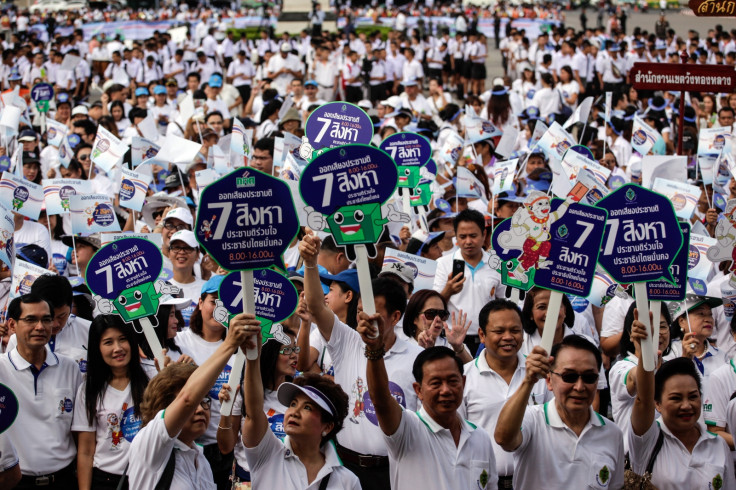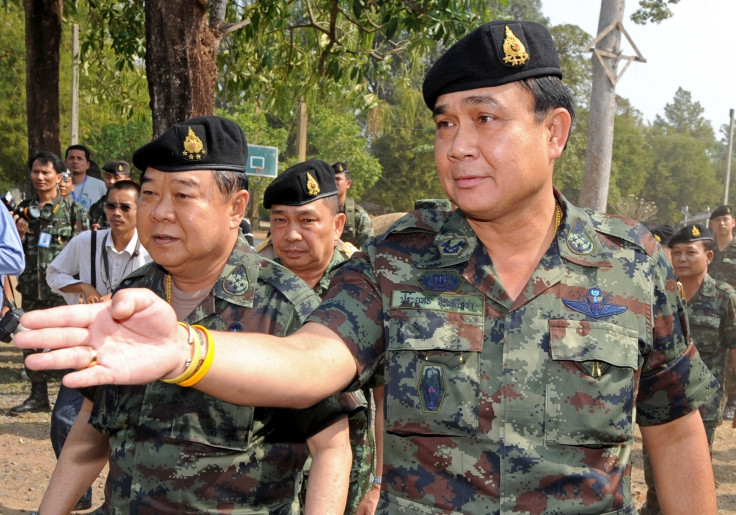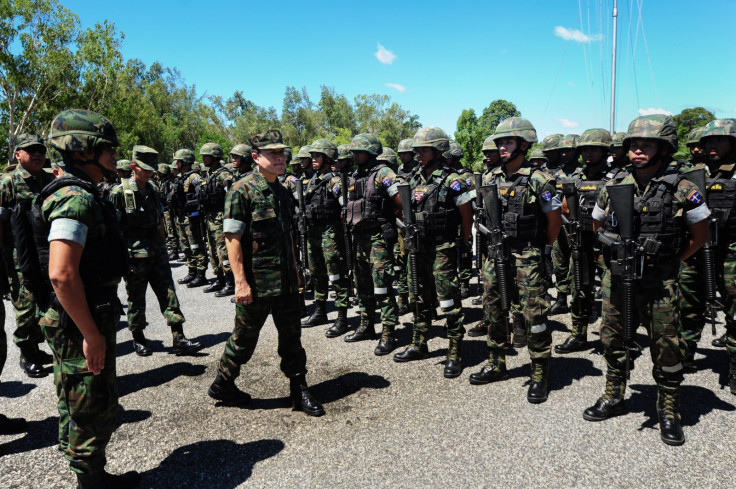Thailand referendum: Media and campaigning crackdown may impact constitution vote outcome
Referendum vote will determine whether the military junta can claim legitimacy and plan the general election in 2016.

On 7 August, millions of Thais are expected to take to the polls to vote on a controversial constitutional referendum. Official political campaigning has been banned ahead of the vote and many human rights activists have raised concerns about how this could impact the outcome.
Thailand will decide whether or not to accept a draft constitution drawn up by the military-backed National Council of Peace and Order (NCPO). According to critics, the proposed constitution would weaken the role of elected officials and extend the military's influence. If the country votes to approve the draft constitution, the military junta would be able to claim legitimacy and plan the general election in 2017.
A crackdown on freedom of expression
Sunai Phasuk, Thailand Senior Research for Human Rights Watch, told IBTimes UK: "A free and fair constitutional referendum cannot be held when the rights of people to speak and exchange their views is suppressed. The conditions for the upcoming referendum are impossible for a free and fair plebiscite."
Phasuk condemned the junta for "ignoring concerted calls" from the United Nations and foreign governments for Thai authorities to respect the people's right to freely express their views on the draft constitution.
He noted that the junta has banned most seminars, conferences and other events that encourage debate on the referendum, "hindering open public discussion" at this crucial time in Thai politics. Phasuk expressed concern over the transparency of the referendum due to the fact that the junta had criminalised attempts by political movements to monitor the voting process and the vote count.
Accusing the junta of creating a "climate of fear" and noting that at least 115 people have been arrested for criticising the draft constitution, Phasuk said that the junta were interpreting "peaceful criticism" to be false information and a threat to national security.

Silencing of the free press
It isn't just the general public who have been targeted. Article 61 of Thailand's Referendum Act forbids the media from spreading "false information" that might influence voters. Violators of this could face up to 10 years in prison, as well as hefty fines of up to 200,000 baht ($5,600USD) and a loss of voting rights for 10 years.
Benjamin Ismail, Head of Asia-Pacific for Reporters Without Borders, told IBTimes UK why this is so successful in silencing the media: "The strategy of fear and dissuasion is effective because journalists and media have already experienced the Junta's authoritarian and repressive policy for the last two years. They know that the military is not bluffing."
Although Ismail said it was difficult to keep track of journalists who had been arrested in relation to reporting on the upcoming referendum, he was aware of at least one case where this had happened.
Taweesak Kerdpoka, reporter for Prachatai news website, was arrested while covering activities of New Democracy Movement members who were circulating flyers that called for people to vote "no". Although he was later released, he continues to face charges and Ismail raised concern over the fact that he could be jailed "merely for doing his work".

The effect of the crackdown on the referendum
"Each day a climate of fear has been heightened," said Human Rights Watch's Phasuk. "Dissenters and critics of the draft constitution are gagged, intimidated and prosecuted".
He went on to warn that the freedom of speech crackdown would have grave repercussions for the outcome of the referendum vote and said that the junta is hoping to see Thai people "shut up and obey their orders" so that they can prolong military rule.
Phasuk said: "For many voters the only source of information about the draft constitution comes from the junta and government agencies – all of which have taken the position that the proposed constitution would benefit the Thai people."
Meanwhile, Ismail said that the only thing that the junta was strengthening through their crackdown on journalists was the "feeling of injustice" and a growing need for fundamental rights and freedoms among Thailand's journalist community.
Ismail and his colleagues at Reporters Without Borders have continued to urge Thai authorities to stop using "draconian" legislation to "gag critical and independent media". In their report on the situation, "Media hounded by junta since 2014 coup", they stress that censorship of the Internet and spying on bloggers and social media users needed to stop.
"The [media] crackdown will definitely affect the referendum as the junta succeeded in limiting the diffusion of information criticising the constitution and calling to vote no," said Ismail. "The junta is obviously abusing their power. That is the bottom line. If they don't want to hear that, they should at least realise how counter-productive their crackdown is."
© Copyright IBTimes 2025. All rights reserved.






















